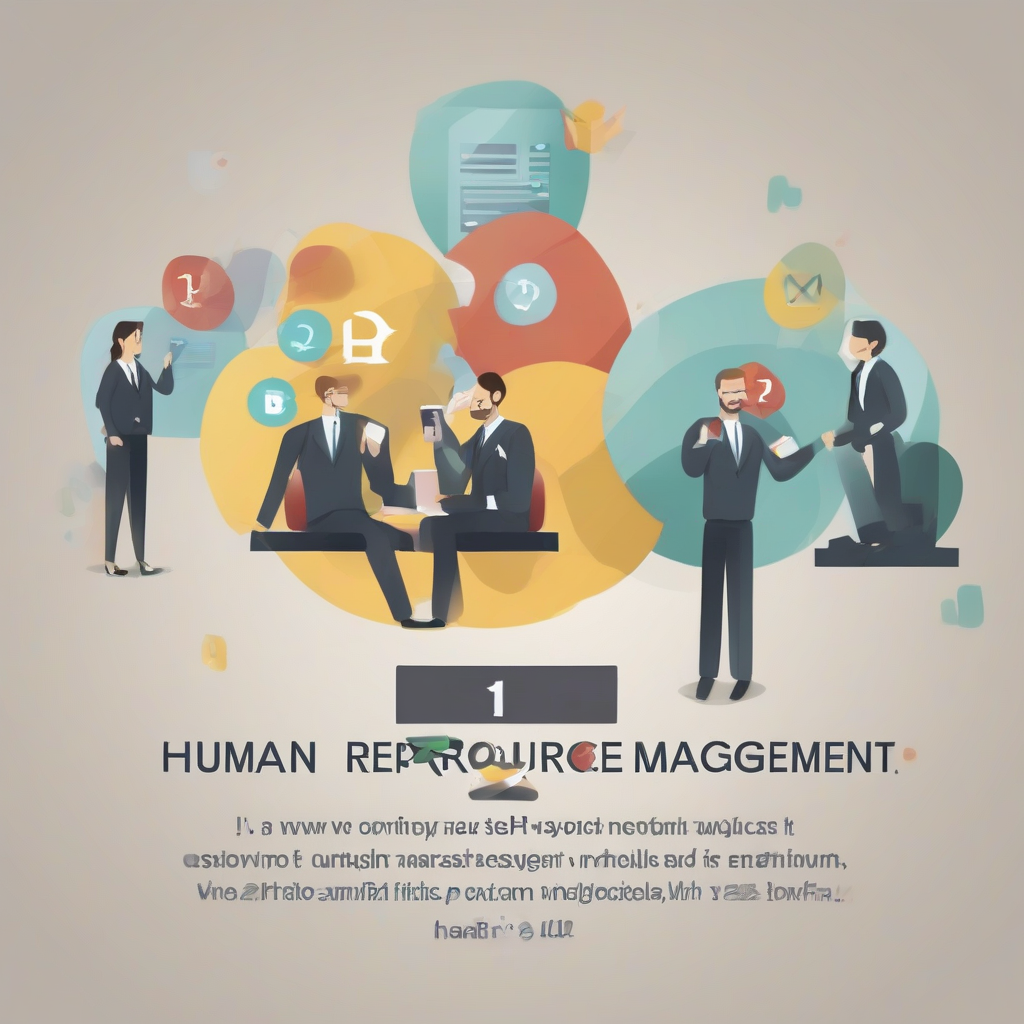ERP Human Resource Management: A Comprehensive Guide

ERP Human Resource Management: A Comprehensive Guide
Introduction
In today's fast-paced business environment, organizations are constantly seeking ways to optimize their operations and improve efficiency. One key area where technology can significantly enhance performance is in Human Resource Management (HRM). Enterprise Resource Planning (ERP) systems have emerged as powerful tools that can revolutionize HRM processes, streamlining workflows, automating tasks, and providing valuable insights. This comprehensive guide will delve into the intricacies of ERP Human Resource Management (ERP HRM), exploring its key features, benefits, challenges, and implementation strategies.
What is ERP Human Resource Management?
ERP HRM refers to the integration of HRM functions within an organization's ERP system. ERP systems provide a centralized platform for managing various aspects of an organization's operations, including finance, supply chain, and customer relationship management. By integrating HRM into the ERP system, organizations can create a unified and interconnected framework for managing human capital.
Key Features of ERP HRM Systems
- Employee Data Management: ERP HRM systems provide a central repository for storing and managing employee data, including personal information, contact details, employment history, payroll details, and performance records.
- Recruitment and Onboarding: ERP HRM systems can streamline the recruitment process by automating job postings, candidate tracking, and onboarding procedures.
- Talent Management: These systems facilitate talent management initiatives, including performance management, training and development, succession planning, and career progression.
- Compensation and Benefits: ERP HRM systems can automate payroll processing, benefits administration, and compensation management, ensuring accurate and timely payments.
- Time and Attendance Tracking: ERP systems can track employee time and attendance, providing valuable data for payroll calculations, productivity analysis, and workforce planning.
- Employee Self-Service Portal: Many ERP HRM systems include employee self-service portals that allow employees to access information, update their personal details, request time off, and access other HR-related services online.
- Reporting and Analytics: ERP HRM systems provide robust reporting and analytics capabilities, enabling HR professionals to generate insights into workforce trends, performance metrics, and other crucial data.
Benefits of Implementing ERP HRM
- Improved Efficiency and Productivity: By automating routine tasks, such as payroll processing and employee onboarding, ERP HRM systems free up HR professionals to focus on more strategic initiatives.
- Reduced Costs: ERP HRM systems can help organizations reduce administrative costs by streamlining processes and eliminating manual tasks.
- Enhanced Compliance: These systems ensure compliance with labor laws and regulations by automating compliance tasks and providing centralized data management.
- Improved Employee Engagement: Employee self-service portals and other features can empower employees to manage their own HR-related matters, improving engagement and satisfaction.
- Data-Driven Decision Making: The data and insights provided by ERP HRM systems enable HR professionals to make more informed and data-driven decisions.
- Better Talent Acquisition and Retention: By automating the recruitment process and providing insights into employee performance, ERP HRM systems can help organizations attract and retain top talent.
Challenges of Implementing ERP HRM
- Cost of Implementation: Implementing an ERP HRM system can be a significant investment, requiring software licensing, hardware infrastructure, and professional services.
- Data Migration: Migrating existing employee data from legacy systems to the ERP HRM platform can be a complex and time-consuming task.
- User Adoption: Ensuring that employees adopt and utilize the new system effectively requires proper training, support, and communication.
- Integration Challenges: Integrating the ERP HRM system with other existing systems, such as payroll, benefits, and talent management platforms, can present challenges.
- Customization: Depending on the specific needs of an organization, customizing the ERP HRM system to meet unique requirements can be complex and costly.
Implementation Strategies for ERP HRM
- Define Clear Goals and Objectives: Clearly define the goals and objectives of implementing ERP HRM, ensuring that the system aligns with the organization's overall business strategy.
- Choose the Right System: Select an ERP HRM system that meets the specific needs and requirements of the organization, taking into account factors such as size, industry, and budget.
- Involve Key Stakeholders: Engage key stakeholders, including HR professionals, IT staff, and end users, in the implementation process to ensure buy-in and effective adoption.
- Provide Comprehensive Training: Train employees on how to use the ERP HRM system effectively, providing ongoing support and resources.
- Change Management: Implement a robust change management plan to guide employees through the transition to the new system and address any potential challenges or concerns.
- Continuous Improvement: Continuously evaluate the effectiveness of the ERP HRM system and identify areas for improvement to ensure that the system remains aligned with the organization's evolving needs.
Conclusion
ERP Human Resource Management is a transformative technology that can revolutionize HR processes, improving efficiency, reducing costs, and empowering organizations to make better data-driven decisions. By implementing a well-designed and integrated ERP HRM system, organizations can unlock the full potential of their human capital and gain a competitive advantage in today's dynamic business landscape.
What's Your Reaction?

















